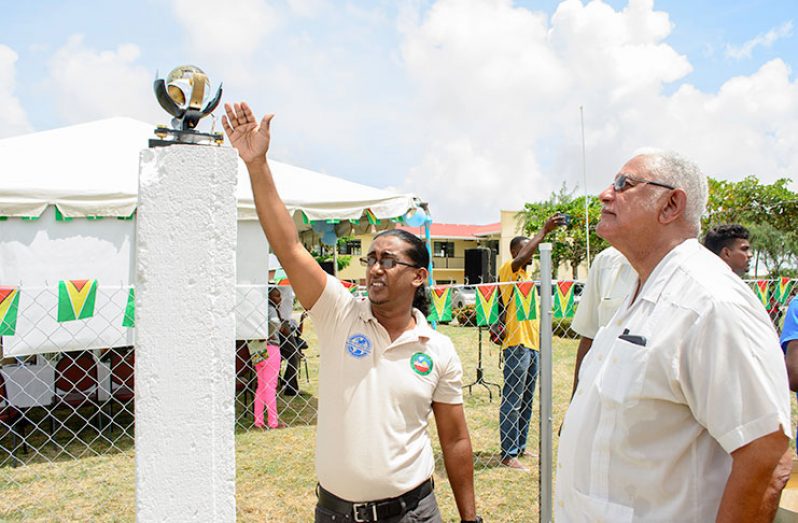AGRICULTURE Minister Noel Holder has said that climate change continues to take a toll on the agriculture sector, pointing out that during 2015-2016, the sector suffered some $4.8B in losses due to drought.He made the disclosure at the commissioning of the Guyana School of Agriculture (GSA) Agro Climatology Station on Friday.
During the period of drought, about 33,231 acres of rice, sugar, livestock and fisheries were lost.
“Taking this into consideration, we must plan in a scientific manner in order to ensure the improvement of agricultural practices and production… and importance must be given to the disastrous effects of climate change,” Minister Holder said, as he reinforced the need for mitigation measures.
Studies have shown that climate change magnifies and multiplies in poor communities.
And to combat these situations, Minister Holder said work has been ongoing to boost the work of hydrometeorological stations across the country.
“The Ministry of Agriculture through its national meteorological office calls on the public to be climate-smart and use the forecasts given… that is why we intend to enhance the support of weather and climate information, so persons can make informed decisions,” he stressed.
On that note, he said commissioning of the Agro Climatology Station at the school’s Mon Repos, East Coast Demerara campus is a step in the right direction.
The station is the 11th in the country and will play a key role in detecting weather variables throughout Guyana.
It will also help students to practically understand agro-meteorology.
GSA Chief Executive Officer Brian Greenidge endorsed the sentiments expressed by Minister Holder, and said the climatology station was timely.
“It will supplement the school’s theoretical aspect of the agro-meteorology course, while also provide an opportunity for students to play an active role in taking measurements of atmospheric conditions,” he said.
Students will be compiling data for the study of weather and climate, and in turn this will improve service delivery by the meteorological station.
This data will be valuable to farmers, since many of them do not take El Nino and La Nina into account when they plant.
Guyana loses $4.8B to drought — during 2015-2016, Minister Holder reports
SHARE THIS ARTICLE :
Facebook
Twitter
WhatsApp




.png)









